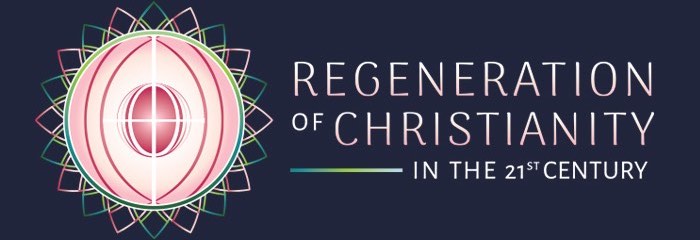
Welcome to ROCI21—the Regeneration of Christianity in the 21st century.
Exodus 20:5 is among the best-known verses in the Bible: “I, the Lord your God, am a jealous God, punishing the children for the sin of the parents to the third and fourth generation.”
The church has long called this generational curses or generational sin. It’s more widely known as generational trauma and is scientifically proven as epigenetic inheritance.
Generational trauma is how original sin passes from one generation to the next in a seemingly irreversible process. In Psalm 51:5, David sings: “I was brought forth in iniquity, and in sin did my mother conceive me.”
What this means is that generational trauma and original sin are, well, synonymous. The same thing. Functionally identical. Yet generational trauma can be recognised and healed.
The Christian belief that original sin is inherent and permanent is therefore incorrect.
This is what ROCI21 is about, why Christianity needs regenerating: one of its fundamental precepts is flawed, keeping us in chains instead of rising to the light of Christ.
Jesus confirms this in Matthew 12:31-32: “I tell you that any sinful thing that you do or say can be forgiven.” There are no exclusions in that statement.
There is no doubt in my mind that Jesus Christ understood both genetics and trauma and tried to communicate them using the language and concepts available to him: “A good tree produces good fruit, and a bad tree cannot produce good fruit.” (Matthew 7:18)
“Pick up your cross”
Original sin is nothing other than a collective trauma handed down globally over the past several thousand years. But trauma is never general; it’s always precise.
Trauma arises mechanically when the conditions for its arising are met, and releases when the mechanical conditions for its release are met. If trauma cannot be transmuted, it must be transferred—from one generation to another.
In Matthew 16:24, Jesus tells his disciples: “If any of you want to be my followers, you must forget about yourselves. You must take up your cross and follow me.”
This is an invitation to our own personal calvary. Calvaries hurt, as Jesus attests. He does not exonerate us from difficult personal healing work, he calls us to it.
By recognising the precise drivers for the traumas passed down our family line, we can consciously connect with them and heal them. Bridging Christianity with science and psychology, ROCI21 can help you.
The ROCI21 definition of the Kingdom of Heaven is the inner experience of freedom from original sin, i.e., from trauma. It’s available here and now, not in some vague promise of the hereafter. The New Earth is a society of people who have attained the Kingdom of Heaven.
The goal of ROCI21 is to promote individual access to the Kingdom of Heaven so that we gradually bring the New Earth into being.
What does ROCI21 offer?
ROCI21’s first offering is The Works of God—a Christian-specific online course for recognising and releasing generational trauma/generational curses/generational sin/original sin.
Further courses are planned.
New Earth 101—a blog series on spiritual hacks for attaining the New Earth.
Here are some key blogs on how humanity became traumatised:
Deuteronomy 28 – how climate change caused the Fall
Long-term drought starting around 4000 BC turned the equatorial belt from North Africa to Central Asia—including the Middle East—from grassland to desert.
1 Kings 18 – how drought and famine created the modern psyche
Environmental stress from loss of habitat turned peaceful people into warrior societies, leading to the traumatization of the feminine and the rise of patriarchy.
Deuteronomy 6 – how ancient taboos created modern social rules
The Old Testament emerged as a history of this violent shift—the Fall—and a rulebook for patriarchy, the only socio-political system that could survive this crisis.
Ezekiel 37 – from the valley of dry bones to the Kingdom of Heaven
Two millennia after Jesus we still live by the unconscious rules of patriarchy, with growing chaos and anxiety from environmental stress. It’s time for regeneration.
Mark 7:20 – how the Fall created the 7 deadly sins
The 7 deadly sins are precise forms of dysfunctional behaviour that arose in response to drought, desertification, and famine.
Latest blogs
John 14:6 is one of the most soundbite-able quotes in that incredibly soundbite-packed work, the Book of John. In response to a question by the disciple Thomas, Jesus replies: “I am the Way, the Truth, and the Life!” Very catchy. But what does it mean? Deconstructing John 14:6 According to Wikipedia, ‘the Way’ was a […]
Revelation 12:9 describes “that ancient serpent called the devil, or Satan, who leads the whole world astray.” (New International Version) Satan, the devil and ‘the enemy’* are generally used interchangeably to name God’s chief opponent. This conflation has been going on for some time. According to a footnote in Wikipedia, “Both the words satanas and diábolos are used interchangeably […]
Genesis 38:9, the story of Onan spilling his seed on the ground, is one of those Bible tales that many people know, yet don’t necessarily know its context. Judah, one of the twelve sons of Jacob, had three sons: Er, Onan, and Shelah. Er married Tamar; however, “Er was very evil and the Lord took […]



